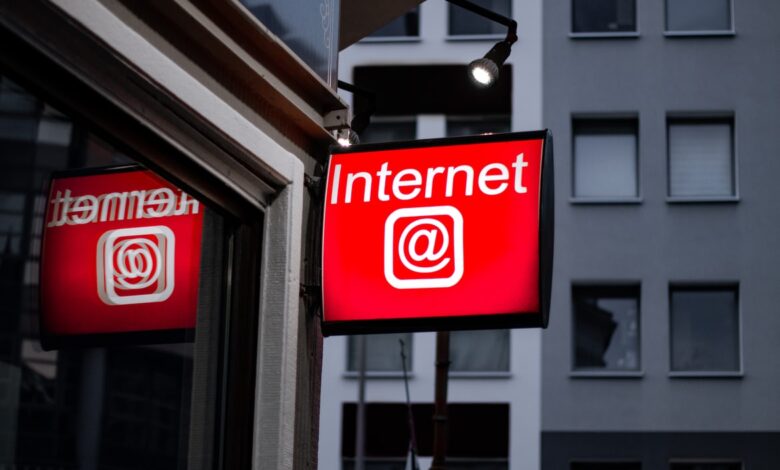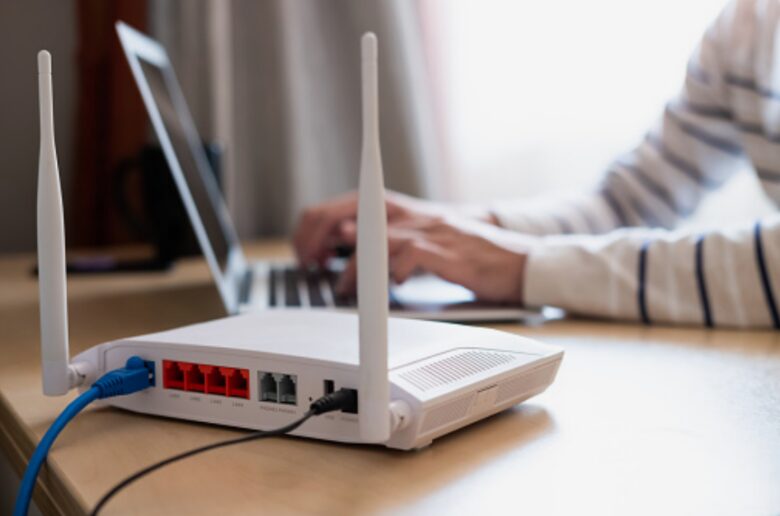
5 Tips on How to Spot Red Flags When Choosing an Internet Provider – 2024 Guide
Transparency of service is the most important aspect for customers as it determines how reliable and trustworthy a service provider is. While you may not have a wide range of internet service providers in your area, it is pertinent that you choose to sign up with one that is transparent about no-so-extraordinary parts of their service. This is because most service providers are keen on putting their best foot forward and concealing the issues that you might have with them in the future and if a contract signing is involved, this puffery can make customers quite miserable.
Internet providers might attempt to evade your inquiries and adhere to a prewritten script for selling you their services. In general, ISPs are especially elusive about their price hikes, data caps, speed options, hidden charges, and the difference between actual vs. advertised upload and download speeds, however, these are the service aspects you ought to know the most about.
In this article, you will learn about the most important aspects that you should ask prior to choosing an ISP.
1. Price Hikes

When trying to make a sale, internet providers find it very challenging to talk about their price hikes as it can affect their pitch negatively. Except if your internet plan is explicitly named ‘Price For Life,’ you ought to expect a price hike eventually. A few providers will be forthright about the principle increase in price. Mostly, you will experience an increase of 10 USD to 20 USD in monthly price after entering the thirteenth month. In any case, different providers will be reluctant to respond to inquiries regarding this increase since they do not have a set increment and their increments are dependent on the market trends.
With providers like these, you should be very pushy to find these answers. Rather than asking directly about the amount and timeframe of a price hike, you should ask when you can expect your first price increase and what might be the maximum limit of that price hike. Tell the provider that you are evaluating your budget and require this information to make an educated decision. This will push them to respond in a much clearer way.
Likewise, ensure you know how often you can expect a price hike. Most providers cause it to seem like there will be just one. This is seldom the situation so you should find out if there is a maximum increase they will charge at any point or if the rate will keep on increasing in intervals. Moreover, you should clarify that you hope to be cautioned prior to an increase in price. If after all this discussion, the provider still does not share factual data, accept that as a significant red flag.
2. Data caps and internet throttling
Some ISPs will guarantee they offer unlimited data allowance and would not charge any overage expense. Nonetheless, unlimited data allowance does not generally mean what you think it implies. A lot of times, internet providers will force a soft data cap, which implies they will not charge you an overage expense for going over this data cap, yet they will dial back your internet speeds for the rest of the month once you hit your soft data limit. This is also known as speed or internet throttling.
Before signing up with any provider, ensure that you know the exact data allowance limit and the amount they will dial back your internet speeds. You should explicitly ask your potential ISP about the situations that make them throttle speeds and their extent as well. Numerous ISPs will want you to focus on the reality that they do not charge overage expenses so ensure you adhere to your point and find solutions about internet throttling.
In the event that you have multiple internet providers available in your area, observe which ISP is more forthright about its data caps and internet throttling. You should prefer not to pick a provider that causes you to feel like you need to ask for essential data about your service. If you live in New York or nearby areas, you can click here to find the best internet deals that offer unlimited data allowance in actuality, and the throttling is also limited to weather conditions.
3. Hidden expenses

Quite possibly the most common grievances clients have with their ISPs is that they did not expect their first internet bill to be so costly. ISPs charge for a lot of things that you might not have been educated about during the service agreement, some one-time dues and other monthly expenses can make the principal bill quite costly. In case you are buying your own gear, ensure your ISP knows to exclude the hardware expense from your bill. You will need to be incredibly careful when you accept your first internet bill to ensure they have excluded whatever else. On the off chance that they do add some extra charges, you will need to raise this issue quickly and take steps to switch providers in case that is a possibility for you.
Numerous clients think that their ISP will disclose to them the cost value they will see on their first bill. Furthermore, ISPs only share the advertised cost when selling you their service and exclude any extra expenses. You should explicitly ask, thusly, what else you ought are expected to pay.
4. Speed alternatives
Many individuals with Wi-Fi in their homes are not aware of the internet speed plan they have. This is because their ISP did not advise them about the different speed levels to look over and they just took whichever one their ISP offered them. Albeit some of the time, there is just a one-speed plan accessible in a locality, there are regularly a couple to browse. Ensure you realize which speed plans are offered by your provider and get some information about those plans so you can make a better decision in terms of your requirements.
5. Actual vs. Advertised upload and download speeds

The last red flag you will need to pay special attention to while choosing an internet provider is if your ISP is not forthright regarding what upload and download speeds you can anticipate. It is very important that you know the variation between advertised and actual speeds. On the off chance that you notice your speeds are lower than what you were told, you can negotiate a better deal since this gives you some leverage. Make sure that you are aware of both upload and download speeds so you know whether your internet is being throttled or not.
Moreover, take note of the contrast between how some ISPs are transparent about this factor compared to others too. This is especially critical to get some information about if your internet service is DSL since DSL speeds frequently intensely rely upon your neighbor’s internet utilization. The more forthright your ISP is about how much internet speeds vary and when you can expect slower or faster speed rates, the better.




